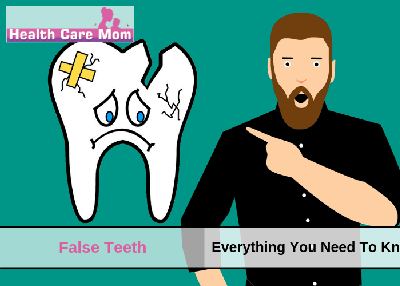
Introduction
Dentures are artificial teeth that are placed in the mouth as a replacement for missing teeth. They play an important role in maintaining oral as well as overall health and quality of life. In this article, we will discuss various aspects of dentures including reasons for needing them, types of dentures available, how they are fitted and maintained, and their benefits.
Reasons for needing Dentures
There can be several reasons why a person might need dentures including tooth loss due to dental decay, gum disease, injury, or congenitally missing teeth. As we age, it is common to lose teeth due to factors like wear and tear, periodontal disease, or trauma. Tooth loss can compromise chewing ability and speech. It can also affect self-esteem and quality of life. Dentures help restore these functions after tooth loss. Some other reasons for needing dentures include:
- Severe tooth decay: If a large number of teeth are heavily decayed, it may be necessary to extract them all and use dentures for replacement.
- Periodontal disease: Advanced gum disease can lead to loose teeth and eventual tooth loss necessitating dentures.
- Accidental tooth loss: Teeth may be lost due to injuries in accidents or trauma requiring their replacement with dentures.
- Congenitally missing teeth: Some people are born with fewer teeth than normal requiring dentures.
Types of Dentures
There are two main types of dentures - complete and partial dentures:
- Complete dentures: As the name suggests, these are used when all teeth in the upper or lower jaw are missing and need to be replaced. Complete dentures are removable and placed on the gums.
- Partial dentures: These are used when some natural teeth remain in the dental arch. Partial dentures are designed to clip onto surrounding teeth for support.
Within these broad categories, dentures can be made of different materials like acrylic, flexible dentures, and implant-supported overdentures among others. The dentist will recommend the most suitable type based on an individual's needs, comfort, and oral health.
Getting Dentures Fitted
The process of getting new dentures usually takes multiple appointments spread over a period of weeks. It begins with taking impressions and bite recordings of the mouth. These are used to make models on which the new dentures are custom-crafted to fit the mouth perfectly. Several try-in appointments follow to check comfort and make adjustments. Finally, the permanent dentures are delivered and the patient is shown how to care for and maintain them. During this time, the gums and mouth adjust to the new dentures.
Caring for Dentures
Good oral hygiene habits are important for the health of natural teeth and gums. The same applies to dentures which also need regular cleaning to stay clean and prevent the growth of bacteria and bad breath. Dentures wearers should:
- Brush dentures daily using a denture brush and non-abrasive toothpaste to remove food debris and stains.
- Soak dentures in denture cleaner solution overnight periodically for deep cleaning.
- Visit the dentist regularly for professional cleaning and checks.
- Rinse mouth with water after meals to keep gums and mouth fresh.
- Remove dentures at night and clean them to give gums a rest.
- Replace old, ill-fitting dentures as advised by dentist.
Keeping dentures clean prevents denture stomatitis, a fungal infection of the gums. It also stops staining and prolongs the life of dentures.
Benefits of Dentures
While dentures cannot replace natural teeth perfectly, they do provide significant benefits:
- Improved chewing ability: Dentures allow chewing of a normal diet by replacing missing chewing surfaces. This enables proper nutrition.
- Restored facial shape and aesthetics: Dentures fill out sunken facial areas caused by tooth loss giving back natural facial form and proportion.
- Better self-esteem: Wearing dentures improves physical appearance and confidence when speaking to others.
- Prevent further bone loss: After extractions, the jaw bones shrink slowly leading to further loss of facial structure over years if left empty. Dentures prevent additional shrinkage by stimulating bone.
- Maintain oral hygiene habits: Having dentures keeps the habit of regular oral cleaning to support oral and overall health.
- Aid in psychological well-being: Edentulism can cause depression due to difficulty eating in public and socializing. Dentures help cope up with these issues.
Thus, dentures play a crucial role in allowing edentulous patients to eat normally and improve smile, appearance, and quality of life. With good denture care habits, they can last a long time providing comfort, stability and security.
Get More Information Here: https://www.ukwebwire.com/dentures-everything-you-need-to-know/
Explore Related Topics, Please Visit: https://masstamilan.tv/signage-an-integral-part-of-marketing-strategy/



























